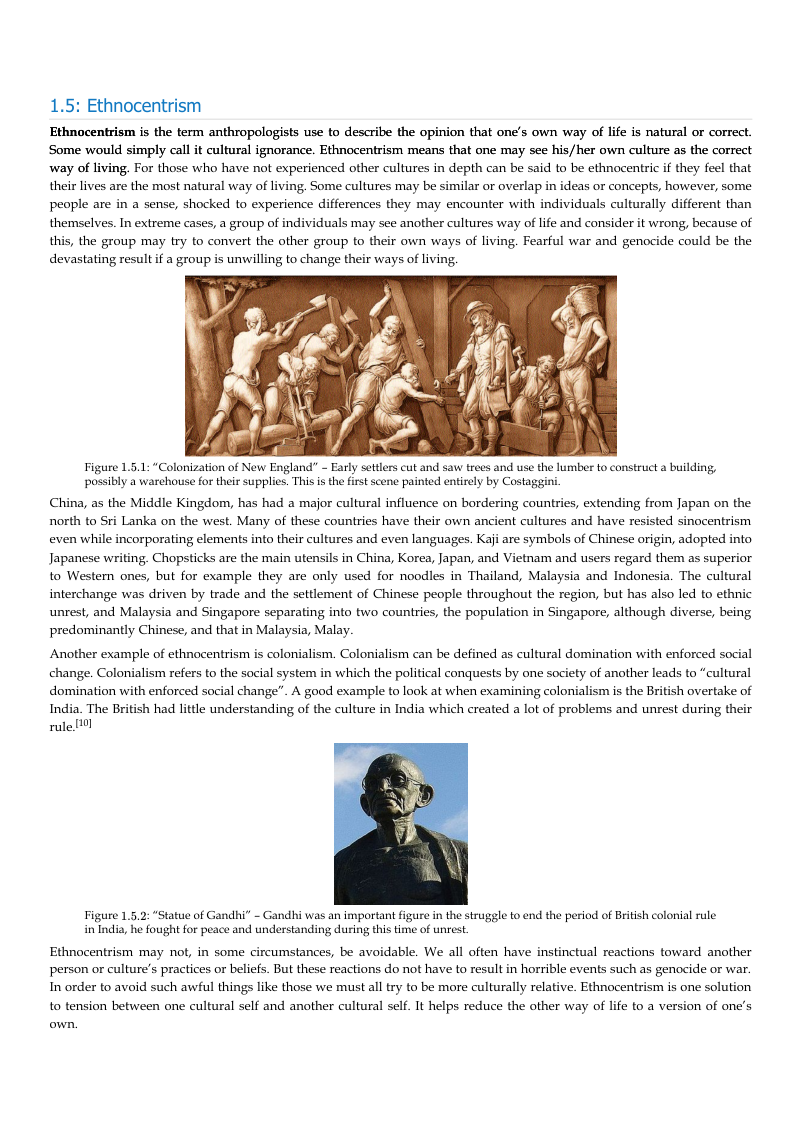Social Sciences Library provides definition of "ethnocentrism."
- Type
- Website
- Source
- Social Sciences Library Non-LDS
- Hearsay
- Direct
- Reference
"1.5: Ethnocentrism," Social Sciences Library, March 25, 2021, accessed August 3, 2022
- Scribe/Publisher
- Social Sciences Library
- People
- Social Sciences Library
- Audience
- Internet Public
- Transcription
Ethnocentrism is the term anthropologists use to describe the opinion that one’s own way of life is natural or correct. Some would simply call it cultural ignorance. Ethnocentrism means that one may see his/her own culture as the correct way of living. For those who have not experienced other cultures in depth can be said to be ethnocentric if they feel that their lives are the most natural way of living. Some cultures may be similar or overlap in ideas or concepts, however, some people are in a sense, shocked to experience differences they may encounter with individuals culturally different than themselves. In extreme cases, a group of individuals may see another cultures way of life and consider it wrong, because of this, the group may try to convert the other group to their own ways of living. Fearful war and genocide could be the devastating result if a group is unwilling to change their ways of living.
China, as the Middle Kingdom, has had a major cultural influence on bordering countries, extending from Japan on the north to Sri Lanka on the west. Many of these countries have their own ancient cultures and have resisted sinocentrism even while incorporating elements into their cultures and even languages. Kaji are symbols of Chinese origin, adopted into Japanese writing. Chopsticks are the main utensils in China, Korea, Japan, and Vietnam and users regard them as superior to Western ones, but for example they are only used for noodles in Thailand, Malaysia and Indonesia. The cultural interchange was driven by trade and the settlement of Chinese people throughout the region, but has also led to ethnic unrest, and Malaysia and Singapore separating into two countries, the population in Singapore, although diverse, being predominantly Chinese, and that in Malaysia, Malay.
Another example of ethnocentrism is colonialism. Colonialism can be defined as cultural domination with enforced social change. Colonialism refers to the social system in which the political conquests by one society of another leads to “cultural domination with enforced social change”. A good example to look at when examining colonialism is the British overtake of India. The British had little understanding of the culture in India which created a lot of problems and unrest during their rule.
Ethnocentrism may not, in some circumstances, be avoidable. We all often have instinctual reactions toward another person or culture’s practices or beliefs. But these reactions do not have to result in horrible events such as genocide or war. In order to avoid such awful things like those we must all try to be more culturally relative. Ethnocentrism is one solution to tension between one cultural self and another cultural self. It helps reduce the other way of life to a version of one’s own.
- Citations in Mormonr Qnas
The B. H. Roberts Foundation is not owned by, operated by, or affiliated with the Church of Jesus Christ of Latter-day Saints.

